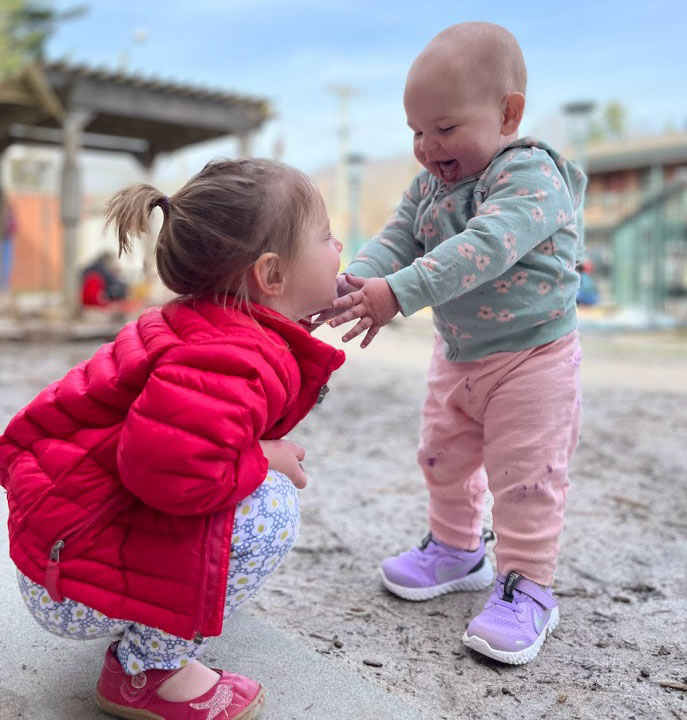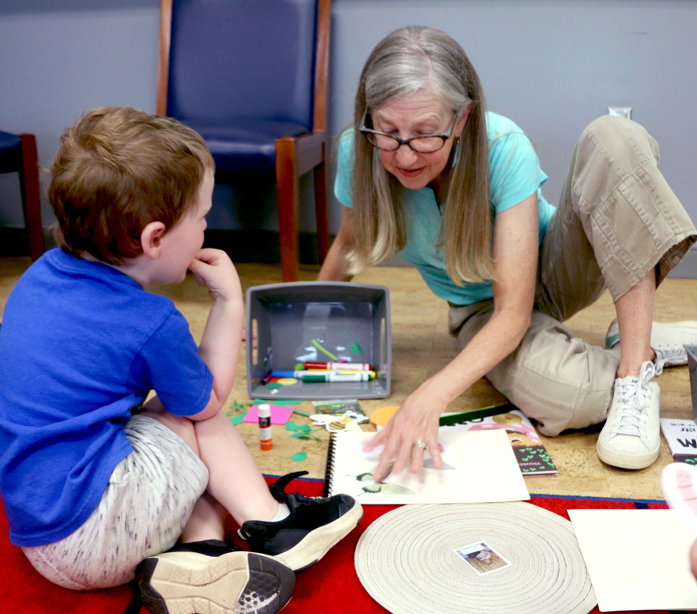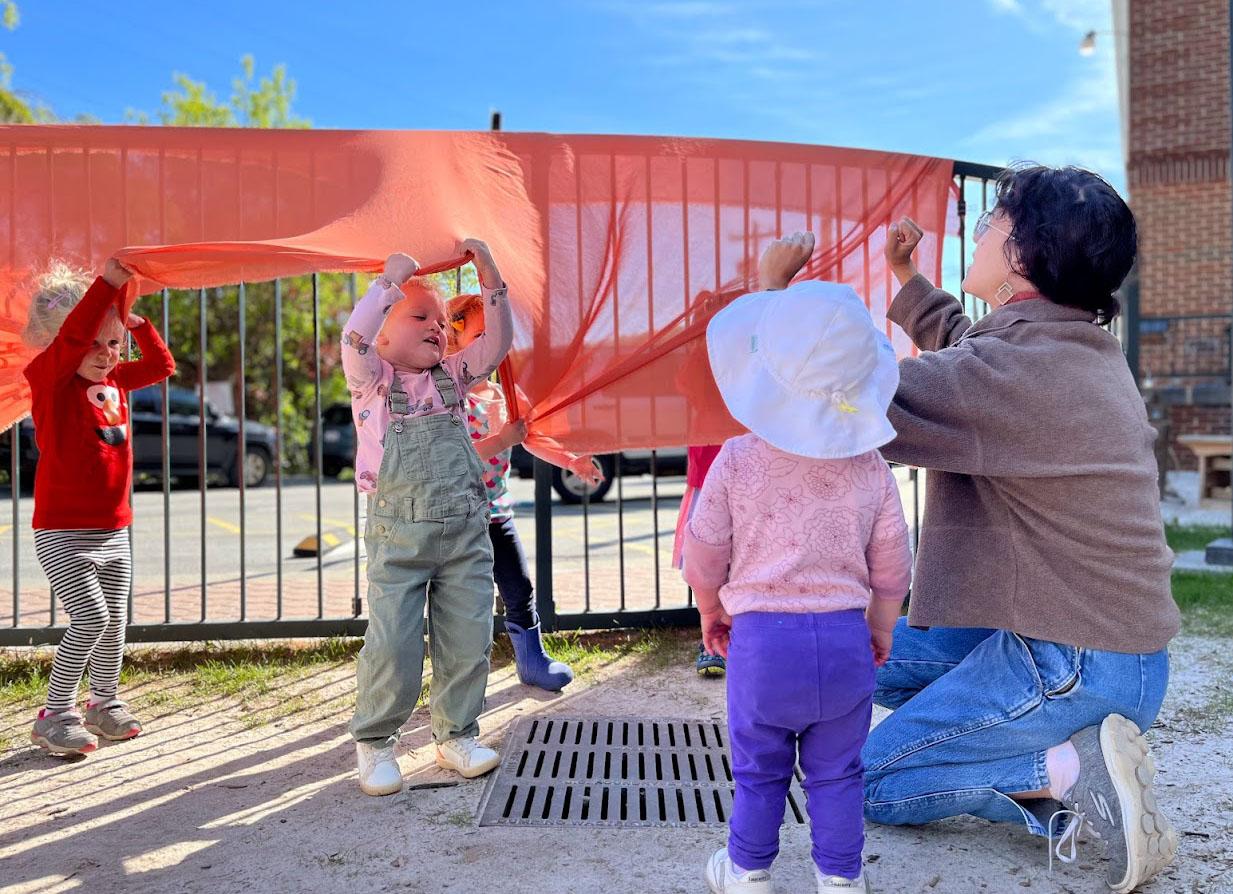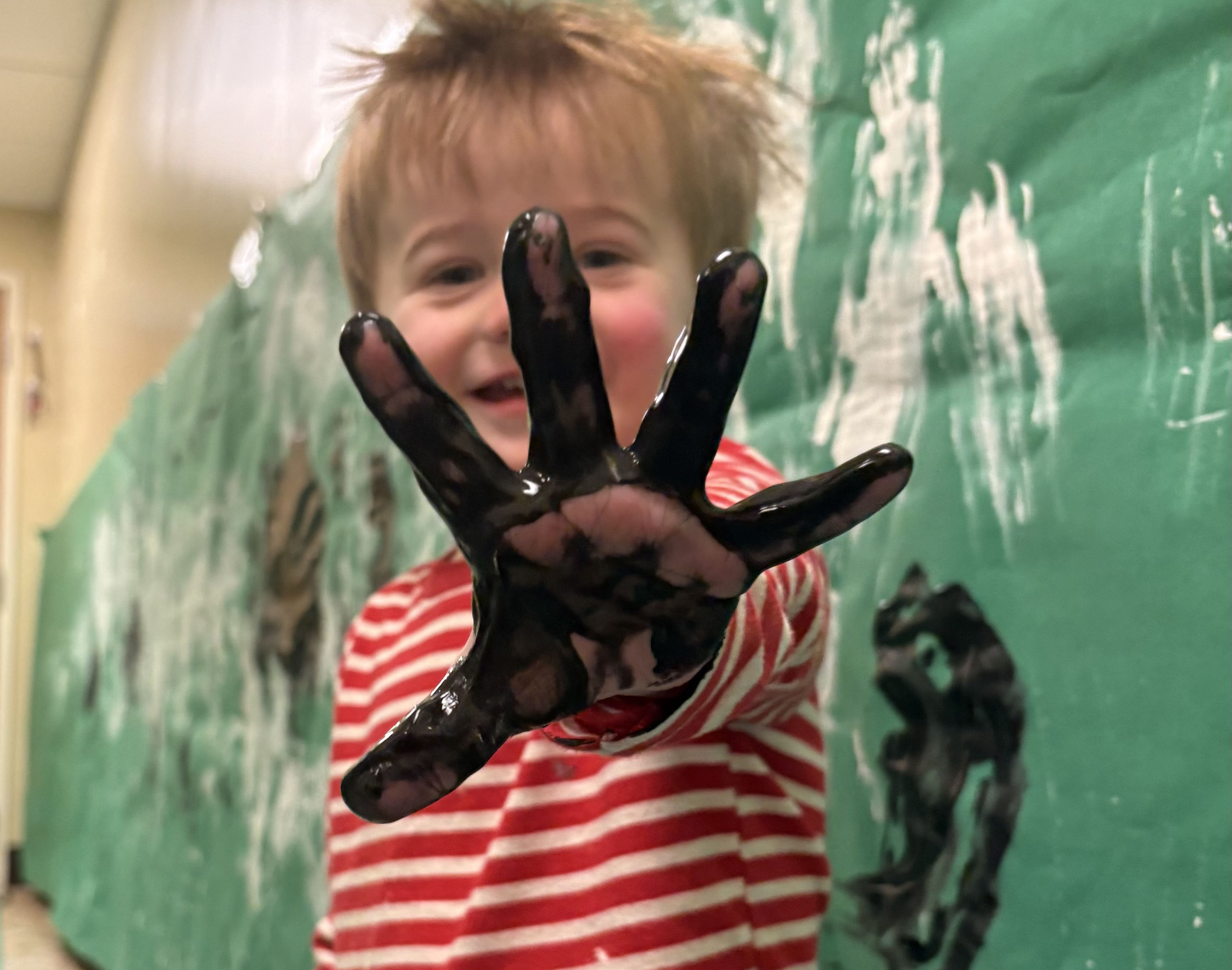
Rooted in the idea that children construct their own knowledge through first-hand experiences, at Lucy Brock, young children are supported in forming theories, developing relationships with the world, and challenging the possibilities surrounding them. Deeply influenced by a number of early childhood theorists, such as Magna Gerber’s concept of responsive caregiving, and Jean Piaget’s influence to support children in the creation of mental structures, theory drives practice and informs our decisions as educators. At Lucy Brock, children, educators, and App State students engage in real-world meaning-making through a mentorship model.

The Lucy Brock learning space serves as a mentorship site for numerous App State students, as well as a co-curricular experience of the Department of Child Development, Literacy and Special Education.
App State students participate at Lucy Brock in a variety of ways. The most basic form of participation is through observation in the observation booths located adjacent to each classroom. Students may observe both individual children and classroom practices. Students use these observations to create connections between their course content and real contextual experiences. Students may also spend brief periods of time in the classroom to have an introduction to interacting with young children. More advanced students may spend extensive time in the classroom and are provided mentorship opportunities as they are immersed in best practices and guided in observing and implementing innovation in the field of early childhood education, while constructing pedagogical documentations of their own.
Please read the Lucy Brock Child Development Lab Participation Manual. This manual provides information that will be useful for you during your experience at Lucy Brock.
- Laboratory Mannual (PDF)
- Preschool Daily Schedule (PDF)
- Infant/Toddler Daily Schedule (PDF)

It is the mission of Lucy Brock is to provide access to high quality child care to young children and their families. Lucy Brock also provides opportunities for graduate and undergraduate students to engage with children in order to learn, grow, and develop their study of early childhood development. Program staff and students utilize currently accepted best practices in the field of early childhood education and apply innovative approaches that aim to contribute to new definitions of best practices.
This laboratory is used primarily by students and faculty in the Child Development, Literacy, and Special Education department. Lab use may consist of students observing children in the natural setting of the classroom or direct interaction with children in the classroom. Faculty and students from other academic programs (e.g. art education, music education, human development, special education, speech and language disorders) may also utilize the lab to experience learning opportunities with young children.

It is the Philosophy of Lucy Brock that Children learn best in a nurturing, supportive, safe environment, where individual and cultural differences are valued. Children learn and develop through active exploration and engagement with the people and objects in their environment. Children make sense of the world in terms that they can understand.
Development of the whole child includes broadening children’s relationships beyond the immediate family to include other children and adults. This development includes feelings of self-confidence and competence as well as dispositions of curiosity and perseverance and a zest for life and learning. All children, from any cultural or ethnic background, whatever social or economic status, and with or without disabilities, have a right to the best possible care and education. One particular source of inspiration is Reggio Emilia, a small town in northern Italy whose infant-toddler and preschool programs have received worldwide acclaim.